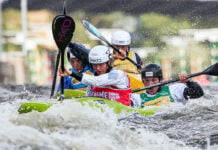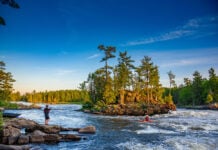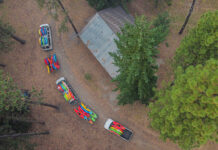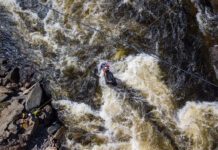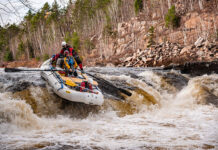I’m excited for spring, and I’m sure you are too. With a year of COVID-19 behind us, we have a better sense of what to expect this paddling season. Last year, we didn’t know what we didn’t know about this pandemic. Now at least, we know what we don’t know.
Last spring, my local area was under stay-at-home orders. Staying local is easy for me as there are iconic paddling options just down the road in Algonquin Park. One of my stand-out memories last May was driving 20 minutes away to a big lake, typically bustling with boat and campground traffic. I was the only person there. As far as I could see—for eight miles—mine was the only boat on the water.
It was beautiful, remarkably peaceful and a little spooky.
Contrast that to summer and fall, when the Covid bump was in full effect. In my area, rental outfitters booked out 100 percent every weekend and 80 percent each weekday. Kayaks and canoes sold out, and retailers and manufacturers had a banner year. Thirty percent more interior camping permits were sold than any year in history. Campgrounds within a few hours’ drive of any urban center were booked solid—every single campsite.
The boom continued months past the usual paddling season. My college guide training whitewater trip in November has never seen another group in the 10 years we’ve run it. This year, there were three other groups on the river at the same time. Unbelievable.
It was a record-setting year by all counts. Algonquin Park had three deaths last summer—one hiker and two canoeists.
One was a first-timer in a rental canoe, swamped in wind waves and drowned wearing a life jacket on a blustery fall day. The other an experienced whitewater canoeist who fell in while scouting a rapid, possibly hitting her head.
Newspapers across North America reported recreation rates, park usage and rescue operations were all up as people stayed and played closer to home.
William S. Howell was a scholar at the University of Minnesota from the 1950s through to the ‘70s. He coined the terms, consciously competent and unconsciously incompetent. These terms are applied to a wide range of topics, but nowhere more so than in outdoor decision-making theory. It has borrowed—plagiarized, really—Howell’s language in safety discussions.
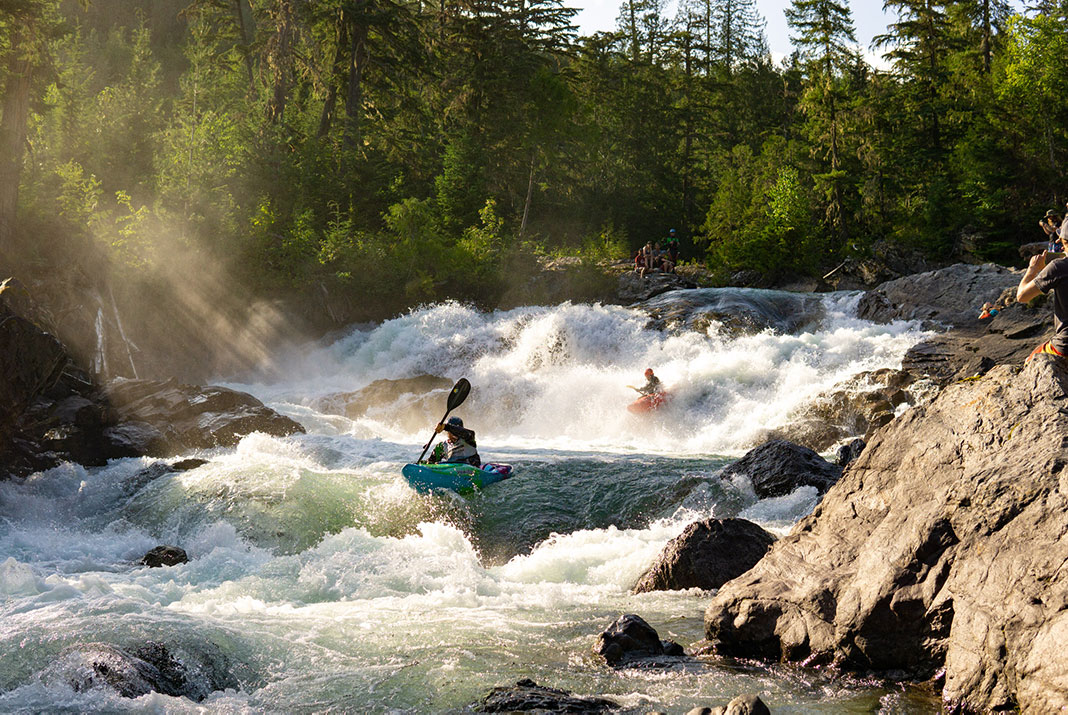
The term unconsciously incompetent applies to novices who don’t know what they don’t know. This progresses to consciously incompetent participants, those who know what they don’t know, then to the consciously competent, who are those who know what they know. Finally, enthusiasts become subconsciously competent—competent without having to think about it.
It is easy to slag newbies in the outdoor world, especially with the advantage of hindsight and smugness. Those who work in the outdoor sector genuinely worry about the unconsciously incompetent. We know the road to competency is a long and bumpy one, with few shortcuts. The simple act of paddling a kayak or canoe can open the door to high-risk interactions.
According to the American Whitewater Accident Database, there was an increase of fatalities on rivers last summer involving inexperienced paddlers. Many involved recreational kayaks in fast water or mild rapids, and many of the victims were not wearing life jackets. “This was almost certainly part of the COVID-19 outdoor recreation growth spurt,” says database manager Charlie Walbridge.
Just as interesting to me, however, are the consciously competent. Those who mistake their comfort or complacency with expertise. Within their comfort zone, they are competent, but they failed to recognize when a line was crossed, and they were out of their depth.
SAR helicopter teams were also busy last summer, rescuing paddlers from remote river locations where new paddlers just wouldn’t end up. Whether it was accessible hotspots becoming busier that motivated people to be more ambitious in their outings and strike into unfamiliar territory, or simply that 30 percent more use comes with 30 percent more interaction with the inherent risks of paddling, there were obvious examples in 2020 of people beyond their abilities.
Howell indicated those most open to learning are the consciously incompetent and consciously competent—the key being conscientiousness. This summer, we know more about what we don’t know, whether it be about adapting to a pandemic or its effects on outdoor adventure. Competency is our goal, but not necessary. Being conscientious enough to know when we’re playing within our limits, and when we’re not, is what matters.
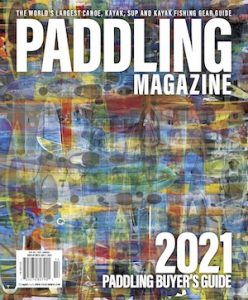
Jeff Jackson is a professor of outdoor recreation at Algonquin College near the banks of the Ottawa River.
Charging down the risk spectrum somewhere between consciously and subconsciously competent. | Photo: Kyle Gorenko


